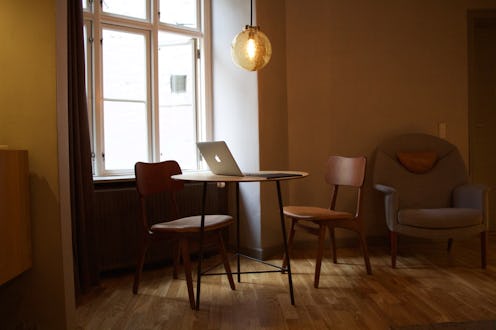Life
9 Things To Consider When Investing In Property

Property is generally considered to be a pretty wise investment, especially if you have immigrants for parents like I do. BUY, BUY, BUY! Rent money is "dead money" apparently, and buying is often seen as a long term step towards financial security and even someday (when the mortgage is all paid off), freedom. Buying an investment property, even if it's an inexpensive, small apartment off-the-plan, can help set you up for the future, and if you've got savings you've been nursing for most of your 20s kicking around, it might be worth exploring putting it into property.
Of course, there's the stock market, or business, or study, or numerous other things you could invest in. But if you're looking to buy in a city or an area that's on the rise, property is a pretty sure fire way to return, or at least maintain, your investment. And if you can get renters in to help pay off your mortgage, even better! Look at you, you're a landlord now and an investor in property! Do you feel like a "mogul?" (Not sure what a "mogul" feels like, but it sounds cool). Anyway, before I hype man for property ownership too hard, here are some things to consider when you're thinking about investing:
1. How Much Money You Have In Your Savings
The first thing you have to do is look at your savings account — reasonably, do you have enough money in there to consider property ownership? Generally about 10 percent or more of what you'd like to borrow is a good starting point, and you'll be able to talk toy our lender about what your options are based on what you've got in your account.
2. How Much "Just In Case" Money You Want To Keep
Investing is a wonderful choice, but it might also be important to keep some cash for a rainy day — unexpected bills, or even to take a much needed trip. Basically, you want to make sure your investment doesn't hurt your ability to live your life or deal with emergencies.
3. How Much Money The Bank Will Loan You
You'll have to think about your credit rating, if you have a steady income and your savings record, because the bank is going to scour your financial records before helping you make this investment. Your lender will help you make a loan application, and most banks will do this for free, under no obligation for you to actually lend. It's a good idea to go in and talk to a lender about this to find out exactly what sort of money the bank is going to be willing to loan you.
4. How You're Going To Pay Off Your Mortgage
Generally you'll pay off an investment mortgage with the renters — that's the point of an investment property. If you're not going to have renters, you really need to be in a solid living and financial situation in order to make monthly mortgage repayments. On the other hand, if you're planning to live in the property, you'll be paying the mortgage like you're paying rent anywhere else.
5. Your Job Security
If you're freelance or have questionable job security, think about investing seriously. If you suddenly find yourself without a job or income, or between renters, you might be in something of a pickle. That's not to say you can't manage it — but be sure you know you're going to have a steady income for years to come before you commit to a 30 year mortgage.
6. Your Current Debts
The bank will certainly consider your current debts, so you should too. If you're already smothered in credit card bills and student loans, adding another $400,000 plus interest might not be the best investment for you right now.
7. What The Property Market Is Like Where You're Looking To Buy
For instance, I've been browsing my hometown of Melbourne, Australia. Property is booming. Newly build apartments are affordable, and the inner city is constantly growing. In five years, it's likely an investment will yield a return. Consider what you can afford, and what the local landscape and community are like. When you're investing, you want something that in the long run, whether five, 10, 20, or 30 years from now, will be a little gold mine for you.
8. Taxes, Insurance, And Other Hidden Costs
Here's the fun part — what you can afford to loan is not how much all this is going to cost you. You're going to have to pay taxes (the percent of which will depend on where you buy, but we're talking numbers in the tens of thousands) on your purchase, and also pay for mortgage insurance with your lender. This stuff could add a considerable amount of money to your intended purchase.
9. What Kind Of Future You're Trying To Build
Before you decide on buying property, it's important to ask yourself what kind of future you want. Do you know where you want to live in the long term? Is this property somewhere you'd want to live one day? Or do you want to travel the world and not be tied down? How committed do you want to be to your investment? Would you prefer to have liquid assets? Are you going to have kids/get married? What does your career earning potential look like? Will the same availability for investment be there in the future? Ask big questions. Making investments, especially in tangible things like property, I shouldn't have to tell you, is a big step. Make sure you're ready for it, and that it makes sense in the scheme of the life you're trying to build for yourself.
Images: Henry McIntosh/Unsplash; Giphy (5)